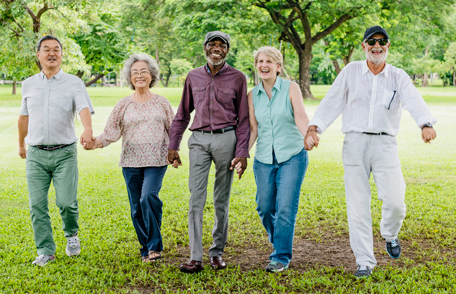
A Chinese study published by Swiss journal, Frontiers in neurology, in April 2023 explored the effect of 12 weeks of Tai Chi on neuromuscular responses and postural control in elderly patients with sarcopenia (the gradual loss of muscle mass, strength and function).
One hundred and twenty-four elderly patients with sarcopenia from ZheJiang Hospital and surrounding communities were selected, however, 64 were later disqualified. Sixty elderly patients with sarcopenia were randomly assigned to the Tai Chi group and the control group. Both groups received 45-min health education sessions once every 2 weeks for 12 weeks, and the Tai Chi group engaged in 40-min simplified eight-style Tai Chi exercise sessions 3 times per week for 12 weeks. Two assessors who had received professional training and were unaware of the intervention allocation assessed the subjects within 3 days prior to the intervention and within 3 days after completion of the intervention. They chose the unstable platform provided by the dynamic stability test module in ProKin 254 to evaluate the patient’s postural control ability. Meanwhile, surface EMG was utilized to assess the neuromuscular response during this period.
After 12 weeks of intervention, the Tai Chi group showed a significant decrease in neuromuscular response times of the rectus femoris, semitendinosus, anterior tibialis, and gastrocnemius and overall stability index compared to before the intervention, while there was no significant difference in the control group for these indicators before and after intervention. In addition, these indicators in the Tai Chi group were significantly lower than those in the control group. The changes in neuromuscular response times of the rectus femoris, semitendinosus, anterior tibialis, and gastrocnemius were positively correlated with the changes in overall stability index in the Tai Chi group, but there were no significant correlations between changes in neuromuscular response times of the aforementioned muscles and changes in overall stability index in the control group.
This study proves that 12-weeks of Tai Chi exercise can improve the neuromuscular response of the lower extremities in elderly patients with sarcopenia, shorten their neuromuscular response time when balance is endangered, enhance their dynamic posture control ability, and ultimately reduce the risk of falls.
ATCQA Members and Certified Instructors/Practitioners can read the full version of the article after signing into their accounts.